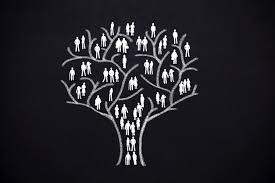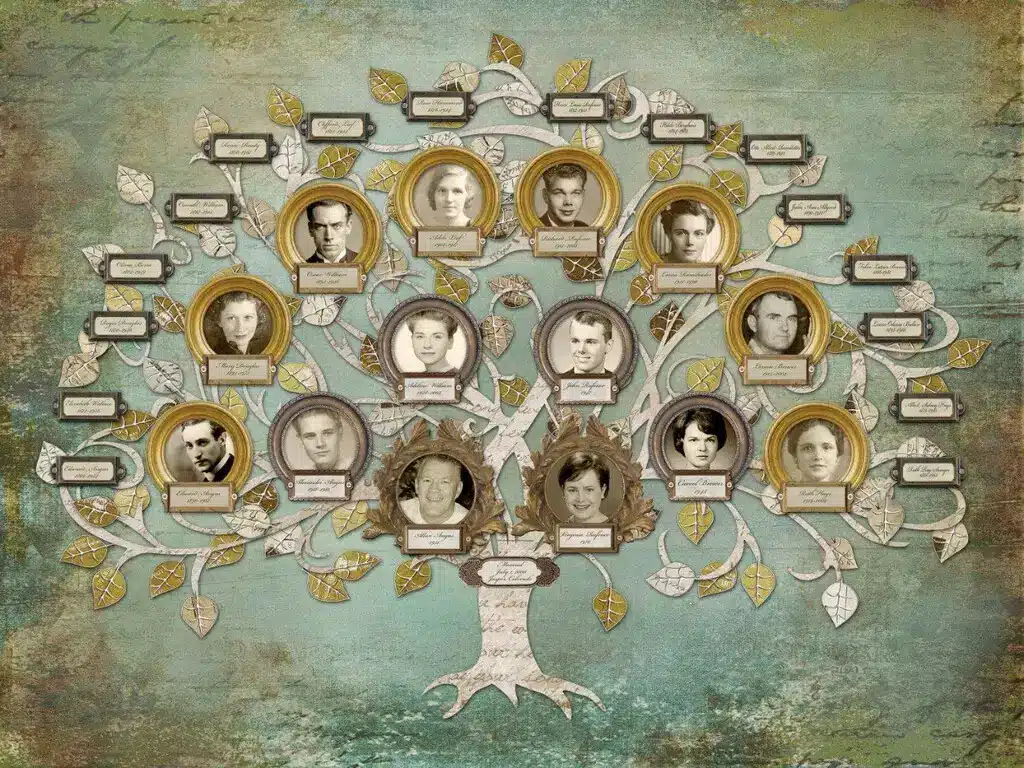Anúncios
Exploring the Roots of Family Names Through Modern Technology

FAMILY ROOTS

Our surnames carry centuries of history, culture, and meaning.
Whether derived from geography, occupation, or lineage, these names are more than identifiers—they are living links to the past.
Anúncios
In recent years, technology has made it easier than ever to explore this heritage.
With surname history apps, people can discover the origins, cultural significance, and global distribution of their family names in minutes.
This article takes a deep dive into the world of surname exploration apps.
We’ll examine their features, benefits, cultural importance, and the psychology behind the curiosity to uncover one’s roots.
Anúncios
Along the way, we’ll look at real-life stories, global perspectives, and the future of digital genealogy.
Why Surnames Matter
Surnames are a universal human tradition, but their meanings differ across cultures. Understanding them can provide:
- Connection to heritage: Identifying ancestral homelands.
- Cultural pride: Appreciating traditions embedded in a name.
- Historical context: Learning about occupations, geography, or social roles.
- Personal identity: Enhancing self-awareness and belonging.
For example:
- Taylor in English refers to tailoring as a profession.
- Singh in South Asia represents lion-like strength and is widely used in Sikh communities.
- Ibrahimović in the Balkans shows “son of Ibrahim,” following a patronymic system.
Every surname tells a story, and apps make that story accessible.
How Surname History Apps Work
These apps combine linguistics, databases, and geography to generate insights.
Key Features
| Feature | Purpose | Example |
|---|---|---|
| Etymology | Explains meaning of surname | “Garcia” = bear (Spanish origins) |
| Geographic Maps | Shows distribution by region | Concentrations in Spain and Latin America |
| Timelines | Displays historical popularity | Usage during medieval Europe |
| Family Trees | Allows integration with genealogy | Linking names across generations |
| Fun Facts | Adds trivia | Famous figures with the surname |
Some apps even integrate with DNA services, offering combined heritage exploration.
Traditional vs. Digital Genealogy
| Aspect | Traditional | Apps |
|---|---|---|
| Access | Libraries, archives, oral history | Smartphones, instant lookup |
| Time | Weeks or months | Seconds |
| Accuracy | Dependent on documents | Depends on database reliability |
| Engagement | Reading and interviews | Interactive maps, visuals, gamification |
👉 Best results come from combining both approaches. Apps provide speed and accessibility, while traditional research validates findings.
The Psychology of Curiosity
Why are people drawn to discovering surname history?
- Identity formation: Names reinforce who we are.
- Belonging: Shared surnames create community ties.
- Mystery solving: Humans naturally seek answers.
- Generational pride: Families want to preserve stories for the future.
This curiosity often spikes during life transitions—such as starting families, moving abroad, or reaching adulthood.
Everyday Uses of Surname History Apps
- Family Conversations
- Parents teach children about cultural origins.
- Grandparents share oral history inspired by app data. 👨👩👧
- Education
- Students use apps for history projects.
- Teachers introduce lessons on migration and culture.
- Travel Inspiration
- Discover ancestral homelands to visit. ✈️
- Deepen connection during heritage trips.
- Social Media Sharing
- Share surname facts online to spark discussions.
- Connect with distant relatives.
- Professional Interest
- Writers use apps for character creation.
- Researchers explore surname evolution.
Global Perspectives
Surname traditions vary worldwide, making apps culturally rich.
- Europe: Many surnames derived from trades (Smith, Baker).
- Asia: Strong emphasis on clan lineage (Kim, Li, Patel).
- Africa: Names tied to geography or events.
- Latin America: Patronymics like Fernández (son of Fernando).
- Middle East: Religious and tribal connections (Abdallah = servant of God).
Apps make these variations visible, allowing users to compare cultures. 🌍
Case Studies
- Maria, Brazil: Thought her surname was Spanish, but the app revealed indigenous roots, inspiring her to study local history.
- James, UK: Found his surname linked to medieval blacksmithing, connecting him to a long tradition of craftsmanship.
- Amina, Kenya: Learned that her family name came from a geographic landmark, sparking interest in ancestral lands.
Challenges and Limitations
- Data Accuracy: Databases may lack information for rare surnames.
- Over-Simplification: Names may have multiple possible meanings.
- Privacy: Apps must protect sensitive data.
- Cultural Sensitivity: Interpretations must respect traditions.
👉 Users should treat results as guides, not definitive truths.
Fun and Interactive Features
Many apps gamify the experience to keep users engaged:
- Quizzes: “Which region does your surname belong to?”
- Comparisons: Check how common your name is globally.
- Famous Matches: Discover celebrities who share your surname. ⭐
- Name Stories: Short narratives about historical roots.
Educational Value
Surname apps are not just fun—they serve as learning tools:
- Linguistics: Understanding root words and language evolution.
- History: Linking names to historical events.
- Geography: Mapping migration patterns.
- Sociology: Exploring how names reflect society.
Teachers and parents can use them to spark curiosity in younger generations.
Table: Common Origins of Surnames
| Origin Type | Example | Meaning |
|---|---|---|
| Occupation | Miller | Grain worker |
| Location | Hill | Lived near a hill |
| Patronymic | Johnson | Son of John |
| Descriptive | Small | Physical characteristic |
| Religious | Cohen | Priest (Hebrew origin) |
This classification shows the diversity of surname formation.
The Role of Technology in Genealogy
- AI: Suggests probable meanings and matches.
- AR: Visualizes migration routes in 3D.
- Big Data: Collects records from multiple countries.
- Integration: Combines with family tree platforms.
Future apps may simulate historical timelines or create interactive family journeys.
Building Family Identity
Exploring surname history strengthens family bonds:
- Encourages storytelling across generations.
- Creates pride in cultural roots.
- Inspires projects like family books or heritage websites.
- Helps children feel connected to something bigger. 🌳
The Future of Surname Exploration
Trends suggest apps will:
- Expand multilingual support.
- Include DNA and cultural traditions.
- Offer eco-conscious features, reducing paper use in genealogy.
- Provide community platforms where users share surname stories.
Conclusion
Surname history apps transform curiosity into connection. They make it possible for anyone to explore identity, heritage, and culture through the story of their family name.
By blending technology with tradition, these tools create a bridge between past and present. Whether used for education, travel, or self-discovery, they empower people to understand the significance behind their names.
In a world where globalization can blur identities, surname exploration offers grounding and pride. It reminds us that names are not random, but carry echoes of our ancestors, their struggles, and their triumphs. Discovering the meaning of a surname can inspire deeper family conversations, motivate heritage trips, or even encourage younger generations to value their cultural roots. For some, it may unlock hidden stories of migration or reveal connections across continents.

